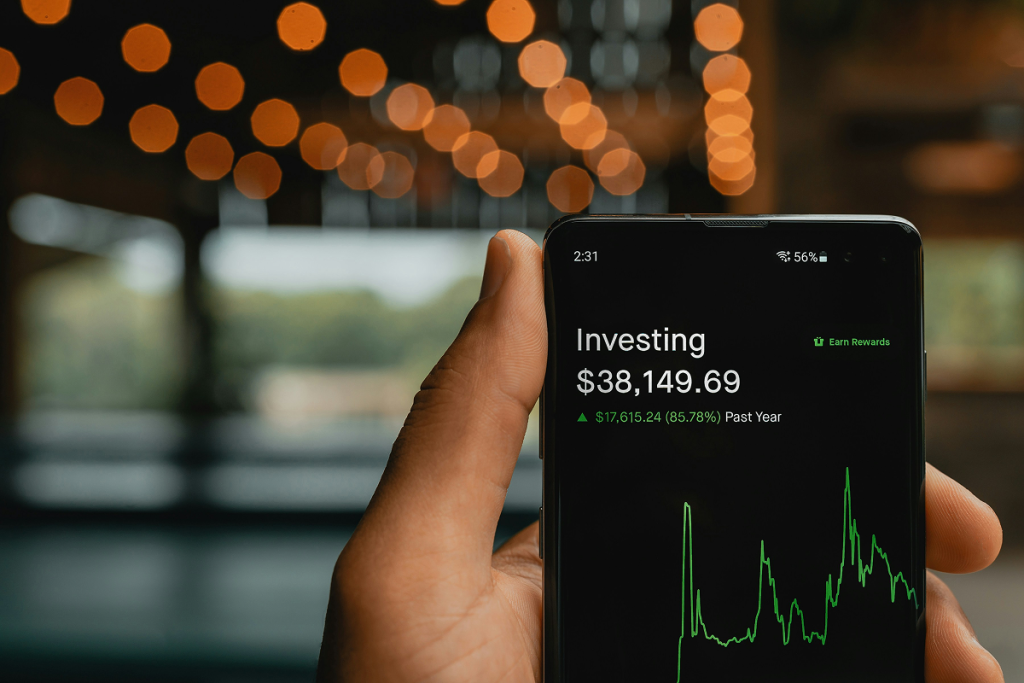
Why Do Investors Invest in Startups?
Investors share different motivations for funding startup ideas. According to the study, digital innovations with the digitalization of major business spheres significantly affect investors’ motivation to invest in startups. Investors make money from startups due to their unique connection to these global trends that provide a unique opportunity to earn high revenue. However, another important motivation is to create a product or service with a unique value, while some investors may demonstrate interest in leading the change or becoming pioneers by owning a startup’s equity.
High Reward is a Main Appeal to Investors
Arguably, high reward potential summarizes a primary advantage of startup investments over traditional ones. This exceptional feature stems from the creative and disruptive nature of solutions, and startups have transformed traditional entrepreneurship through unique business and investment models since the 2010s. For example, angel investors make money by receiving equity ownership, while additional rewards may include royalties or convertible debt. A successful startup provides high profits, and this aspect further strengthens investor’s credibility and influence.
High-Risk Investments: What Investors Should Know
In his article, Marcin Majka admits that investors’ mindset emphasize a decisive role of uncertainties and risks in making an investment decision. The reading further highlights the necessity of achieving startup traction to demonstrate its value, which increases investor confidence. In this regard, it is reasonable to share a crucial statistical fact: a failure rate of 90% where lack of competencies and poor decision-making are the main contributors to failures. Thus, investors should address these concerns first in addition to uncertainties like market volatility or market potential, as they significantly influence the long-term viability and return potential of the startup.
How Trending Startup Niches Drive Investor Motivation
Investors make money by focusing on emerging or trending markets with steady growth, supported by real-life use cases with scalable business models. This approach further allows professionals to minimize investment risks while getting access to businesses with high-revenue potential. In the digitalization era, different markets experience tremendous growth, which eventually attracts investors seeking early entry into innovative sectors known for their strong scalability and disruptive potential.
- AI. The report underscores the increasing impact of AI solutions on organizations, while companies actively invest in the technology for its indispensable value for business operations.
- Cybersecurity. With an increasing number of cybersecurity positions, it is reasonable to assert that demand for cybersecurity will grow, making this niche attractive for investors.
- Digital Marketing. Investors can make money by investing in startups that develop solutions for marketing and sales needs, and productivity tools are perfect examples of how marketing teams can boost their performance, making them attractive investment opportunities.
- Fintech. Despite the market decline in 2023, this niche continues to grow and offer new competitive startup ideas and opportunities.
- Edtech. With the rise of AI and remote technologies, investors actively invest in new solutions for education to support academic performance in different environments.
What are the Main Types of Investors?
One of the most popular queries is, “How do private investors make money?” The main challenge lies in understanding the difference between traditional, venture capital, and angel investors. Moreover, based on a specific investor type, the way how investors make money can significantly contrast. Primary criteria that differentiate types of investors include:
- Investment Stage
- Capital Size
- Risk Tolerance
- Involvement Level
- Exit Strategy and Timeline
Private Investors
This category includes high-net-worth individuals, family offices, and angel investors. On rare occasions, these investors can be an informal group that invests directly their savings in a startup idea. With a high-risk profile, these investors make moderately small investments. However, private investors make money being motivated by potential returns, interest in innovative ideas, or personal ties to the project.
Private Equity Investors
Private equity investors focus on established companies while making large capital investments. This investor type targets projects with moderate risks and private equity investors can acquire controlling stakes to restructure or scale them for a second sale. Compared to private investors, these investors make money after exit with high returns via resale or IPO. Some investors share a significant interest in influencing leadership decisions with majority ownership.
Venture Capitalists
Venture capitalists create their funds to make investments in startups at early and later investment rounds. In turn, VC investors make money from startups through fees and revenue sharing, which explains their focus on businesses with proven traction and sales performance. While VC firms are risk-tolerant, they expect high returns. This category of investors also pushes the company for acquisitions or IPO when valuations peak.
How Do Investors Make Money?
The article has illustrated common types of investors and why professionals demonstrate a high inclination to invest in startups. In this regard, investors make money through exit strategy and a combination of possible investment methods. Convertible notes, follow-on investments, and dividends, for example, allow investors to earn profits or adjust them based on a chosen investment strategy. However, the pivotal part in this process is exit because it is the moment when investors realize their returns, whether through acquisition, initial public offering (IPO), or secondary sale, transforming their paper gains into actual profits.
What Is a Startup Exit? A Turning Point in Startup Investment
Exit is the cumulative part of a startup’s investment cycle when investors make money from the startup by monetizing their investments. Professionals sell their ownership through different strategies. Compared to dividends or royalties, selling ownership yields returns that substantially exceed their initial capital. It is reasonable to admit that exit strategies are negotiated during the initial funding stages to align the interests of founders and investors and to ensure a specific pathway for realizing returns.
Initial Public Offering (IPO)
When a company meets specific legal and financial requirements to trade its shares on the stock exchange, allowing investors to capitalize on this exit strategy. In turn, investors make money from startups by selling part or all of their shares at the market price, which is higher than the initial investment. It is a transformative moment for the business since the company becomes obliged to follow strict disclosure and reporting requirements, limiting its flexibility.
Acquisition
One of the common exit strategies that allows investors to make money from startups after a period of growth and value creation. For instance, private investors make money from receiving a payout based on the purchase terms, though they must stay due to earn-outs. It means that the purchase price is determined by post-acquisition performance.
Merger
Compared to an acquisition strategy, which involves selling a startup to a big firm, a merger should be viewed more as a strategic move to increase the company’s scaling. Investors can make money from receiving shares in the new entity or a cash payout, monetizing their original stake. It also provides an opportunity to increase long-term value by converting shares into new company stock while delaying the full exit.
Secondary Sale
As one of the popular strategies, investors, founders, or employees can sell their shares before the company has an official exit. Specifically, angel investors make money from startup investments with liquidity provided by sold shares. It means that a startup does not issue new shares to raise capital, while acquired shares can empower the new owner by extending his influence over the company.
Conclusion
Investors can make money by supporting innovative ideas and emerging startups, where innovative niches like AI or digital solutions and niches like AI or digital solutions make a real impact on industries while offering high-growth potential, leading to significant returns. However, it is essential to recognize risks and uncertainties related to a specific market, while highly dynamic and competitive environments can significantly stress a startup’s survivability. It is highly recommended to read the latest investment trends to understand the future development of the entrepreneurial ecosystem. Additional suggestions include but are not limited to, following startup news, technological advancements, regulatory changes, market demand shifts, competitor activities, and expert analyses to make informed investment decisions.
Frequently Asked Questions (FAQ)
Q: How do angel investors make money in the case of early-stage startups?
A: While this type of investor is risk tolerant, they make money from equity ownership or secondary sales by selling their shares to new private investors.
Q: How do investors make money from startups that are new and have no traction?
A: Investors can acquire shares at low prices while betting on the project’s idea and team potential; professionals further participate in the next funding rounds to protect their stake, and investors eventually monetize their revenue through long-term exit.
Q: How do private investors balance risk and reward when funding non-public startups?
A: Some investors choose active involvement to mitigate risks. In turn, they expect substantial returns while negotiating on due diligence, protective measures, and staged investments.




